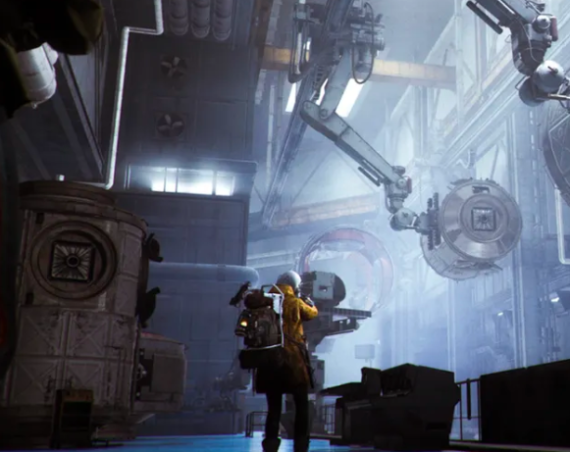
Tron: Ares Reveals a Powerful Familial Love Story at Its Core
The newest installment in the Tron franchise, Tron: Ares, introduces an unexpected but deeply moving familial love story that adds rich emotional layers to the sci-fi action. Actress Greta Lee, who portrays Eve Kim, discusses how this love story forms the heart of the sequel, driving the plot in ways that may surprise longtime fans and newcomers alike.
The Heart of Tron: Ares — A Distinctive Familial Love Story
Greta Lee emphasizes that the narrative centers around Eve Kim’s intense and personal journey, framed by the loss of her sister. Unlike many sci-fi stories that focus on human versus artificial intelligence conflicts or romantic entanglements between humans and AI, this film’s core motivation is the powerful bond of sisterhood.
- Character Depth: Eve is portrayed as a complex figure who is both incredibly strong and vulnerably human, creating a connection not often explored in science fiction.
- Emotional Drive: The loss of Eve’s sister, Tess, who was the co-CEO of ENCOM, propels Eve to defy limits and undertake dangerous risks in search of a technology that could redefine existence.
- Audience Immersion: The filmmakers aimed to immerse viewers in this emotional journey as if they themselves were part of the story’s life cycle — experiencing growth, loss, and transformation firsthand.
Plot Overview: The Quest for Permanence
Within the film universe, digitally created objects on the grid can only exist in the real world for 29 minutes. The elusive “Permanence Code,” originally developed by legendary figure Kevin Flynn, would permanently anchor these digital creations to reality, potentially revolutionizing humanity.
After Tess passes away from cancer, Eve takes it upon herself to continue her sister’s mission. Her pursuit inevitably leads to conflict with Ares, a rogue artificial intelligence spawned by ENCOM’s adversary Dillinger Systems. This AI antagonist introduces chaos, blurring the lines between digital and real realms.
Breaking Sci-Fi Tropes with a Human Story
Lee highlights that although the trailers suggest a possible romance between Eve and the AI Ares—a common sci-fi and cinematic trope—the film challenges this expectation. Instead, the love and determination rooted in Eve’s familial ties become the true driving force behind the narrative.
She reflects, “I am fascinated by characters who are ordinary people thrust into extraordinary circumstances, who then rise to become superhuman in their actions. It’s inspiring to see what humans are capable of when pushed beyond limits.” This perspective aligns with a growing trend in science fiction storytelling, where emotional authenticity and complex human relationships are increasingly foregrounded.
Contextualizing the Story: Evolution in Sci-Fi Themes
Tron: Ares follows a broader shift seen in recent science fiction media. Films like Her (2013) and series such as Black Mirror have deepened the exploration of human-AI interaction, but often with a romantic or dystopian lens. Tron: Ares uniquely foregrounds familial love, introducing a fresh emotional dimension.
According to recent studies, audiences increasingly value narratives that emphasize authentic human emotions and complex relationships even within fantastical contexts (Source: Pew Research Center, 2023).
Main Cast and Creative Team
- Greta Lee as Eve Kim, driving the emotional core of the story.
- Evan Peters as Julian Dillinger, the antagonist’s grandson.
- Gillian Anderson as Elisabeth Dillinger, Julian’s mother.
- Jodie Turner-Smith as Athena, an advanced AI figure.
- Directed by Joachim Rønning, known for blending spectacle with character-driven stories.
- Written by Jesse Wigutow, bringing experience from acclaimed TV work.
Significance of Tron: Ares in the Franchise and Sci-Fi Genre
As the third film in the Tron series, Tron: Ares aims to honor the legacy of the original 1982 movie, while reinventing its narrative focus with thematic depth. The emphasis on a personal, familial love story appeals to modern audiences seeking emotional engagement alongside high-concept science fiction.
Box office analytics indicate that sci-fi films focusing on strong character development and relatable human emotions tend to outperform those relying solely on special effects and action sequences (Source: Box Office Mojo, 2025).
Why This Matters
- Emotional Resonance: Tron: Ares pushes boundaries by integrating heartfelt storytelling in a sci-fi setting.
- Representation: Featuring strong, layered female protagonists like Eve provides viewers with empowering role models.
- Genre Evolution: It exemplifies the new wave of science fiction that balances technology, action, and human experience.
Conclusion
Tron: Ares delivers a compelling fusion of cutting-edge sci-fi visuals and a uniquely touching familial narrative. Greta Lee’s portrayal of Eve Kim highlights the courage and vulnerability of a woman driven by love and loss, providing audiences with a fresh lens through which to experience the Tron universe.
This fusion of emotional depth and futuristic themes signals a promising direction for the franchise and reflects broader trends in science fiction cinema where human stories take center stage.


